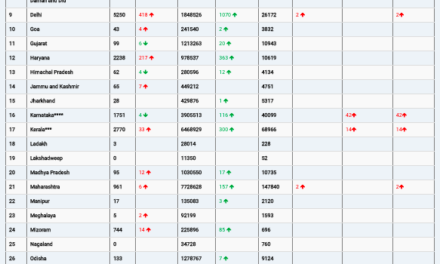
The Regional Action Plan for prevention and control of snakebite envenoming in South-East Asia 2022–2030 was published in December, in New Delhi, India. The document builds on the 2019 global strategy by accelerating efforts to halve the number of deaths and disabilities due to snake bites in the Region by 2030.
Snakebite envenoming is a neglected tropical disease that afflicts people living in poverty. An estimated 1.8–2.7 million people worldwide are envenomed annually. The South-East Asia Region is a biodiversity hotspot for venomous snakes, and is also home to some of the world’s most densely packed agrarian communities. Snakebites in the region contribute to almost 70% of estimated global snakebite deaths. Research from India alone indicates that 58 000 deaths result from the 0.77–1.24 million cases of snakebite envenoming each year.
Like many neglected tropical diseases, most deaths and serious consequences of snakebite are preventable with safe and effective treatment. Yet lack of awareness, inequitable access to appropriate treatments (such as antivenoms), and socioeconomic challenges mean many rural ghpeople continue to suffer disproportionately.
Commenting on the launch of the Regional Action Plan, Dr Poonam Khetrapal Singh, Regional Director for the WHO South-East Asia Region, said:
“The people most affected by snakebite are typically those with the least access to services and medicines. Therefore, universal health coverage based on robust health systems and people-centered primary health care is the most powerful force to reduce the impact of snakebite envenoming. Engaging communities and national and international partners to extend awareness, knowledge, and access to care as much as possible will ensure that no person or community is left behind, and this is also essential.”
Scope
The Regional Action Plan was developed through a consultative process with Member States, experts, and partners with the objectives of:
- preventing snakebites and providing effective first aid;
- ensuring access to life-saving treatment and care; and
- improving the availability of quality, effective, safe and affordable antivenoms.
This multisectoral plan embraces the principles of One Health, Eco-Health and the aspirations of the Sustainable Development Goals and their targets. It adapts WHO’s global strategy into an outcomes driven regional plan that seeks to address the particular challenges snakebite envenoming presents for countries in the Region. The document provides important guidance for countries, WHO, donors and partners to facilitate solving these problems collaboratively and reducing the impact of snakebites on human and animal health throughout the Region.
The Regional Action Plan for Prevention and Control of Snakebite Envenoming in South-East Asia 2022–2030 can be downloaded here.










